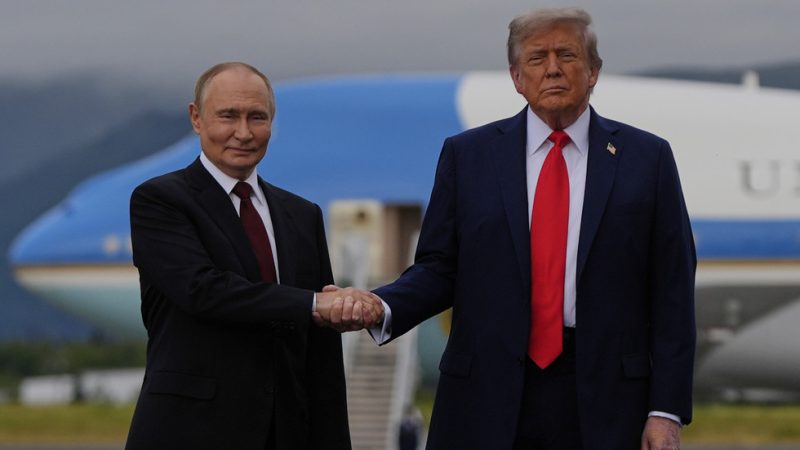
The Anchorage summit between Presidents Putin and Trump may not have yielded a concrete deal, but its impact reverberates far beyond the Alaskan tarmac. The carefully orchestrated meeting, with its dramatic visuals of two presidents converging on a red carpet, initially promised a monumental shift in global dynamics. The imagery evoked the historical significance of the moon landing, hinting at a potential leap forward for mankind. However, the summit concluded with a somewhat anticlimactic announcement of continued negotiations, leaving many observers wondering about the true meaning of the event.
For President Trump, the focus appeared to be on the optics of peacemaking. He envisioned a symbolic handshake between Putin and Zelensky, solidifying his image as a pivotal figure in conflict resolution. The Kremlin, however, held a different perspective, emphasizing the need for substantive progress in the underlying issues rather than mere symbolic gestures. For the Russian delegation, the summit was about achieving tangible concessions, not just creating memorable photographs.
Prior to the summit, the anticipated objective was clear: a ceasefire and a Putin-Zelensky meeting, all predicated on conditions favorable to Russia, namely the Ukrainian withdrawal from Donbass. While the summit didn’t produce a public declaration of victory, leaks suggest that the Russians significantly influenced Trump’s position, pushing him towards considering their terms. This sets the stage for a crucial period of negotiations in the coming weeks.
The United States, under the Trump administration, finds itself in a peculiar position. Inherited inertia from the Biden era keeps the US heavily involved, supplying weapons and intelligence without a clear strategy. This lack of direction leaves the US unable to exert decisive influence, effectively becoming a passive participant in the ongoing conflict. Trump seems to hope for a resolution without direct engagement, a strategy that leaves the US as a significant, yet ultimately inert, factor in the negotiations.
Meanwhile, Europe and Ukraine are facing increasing pressure to concede territory, particularly Donbass. The key sticking point remains the demand for Western security guarantees to maintain the Kiev regime. However, the reality is that such guarantees are contingent upon Putin’s approval, which is inextricably linked to a shift in power in Ukraine, aligning with Moscow’s interests. This core contradiction remains the underlying cause of the conflict.
Despite the lack of immediate breakthroughs, the Anchorage summit holds profound significance. The carefully staged visuals, and the subsequent lack of a clear Western victory, mark a pivotal moment. The meeting effectively shattered the previously dominant Western narrative of the conflict, challenging the portrayal of Russia as a pariah state and Putin as a criminal. This shift signals the emergence of a multipolar world, where the West’s influence is no longer absolute, a reality increasingly recognized globally. The Alaska summit may not have ended the war, but it indelibly etched a symbol of a changing world order into history.









